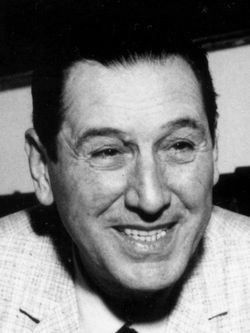
Cause of death: heart attack
Juan Domingo Perón (UK: , US: , Spanish: [ˈxwan doˈmiŋɡo peˈɾon] ; 8 October 1895 – 1 July 1974) was an Argentine lieutenant general, politician and statesman who served as the 29th President of Argentina from 1946 to his overthrow in 1955, and again as the 40th President from October 1973 to his death in July 1974. He is the only Argentine president elected three times, and holds the highest percentage of votes in clean elections with universal suffrage. Perón is the most important and controversial Argentine politician of the 20th century, and his influence extends to the present day. Perón's ideas, policies and movement are known as Peronism, which continues to be one of the major forces in Argentine politics.
Perón had previously served in several government positions, including Minister of Labour and Vice President under presidents Pedro Pablo Ramírez and Edelmiro Farrell. His first presidential term (1946–1952), Perón was supported by his second wife, Eva Duarte ("Evita"); they were immensely popular among the Argentine working class. Perón's government invested heavily in public works, expanded social welfare, and forced employers to improve working conditions. Trade unions grew rapidly with his support and women's suffrage was granted with Eva's influence. His government was also known to employ dictatorial tactics; several dissidents were fired, exiled, or arrested, and much of the press was closely controlled. Several high-profile fascist war criminals, such as Josef Mengele, Adolf Eichmann, and Ante Pavelić, were given refuge in Argentina during this time.
Perón was re-elected by a fairly wide margin, though his second term (1952–1955) was far more troubled. Eva, a major source of support, died a month after his inauguration in 1952. An economic crisis was ongoing, Perón and his plans to legalise divorce and prostitution damaged his standing with the Catholic Church. After he deported two Catholic priests and was mistakenly thought to be excommunicated, pro-Church elements of the Argentine Navy and Air Force driven by the U.S government bombed Plaza de Mayo in Buenos Aires, where supporters of Perón had gathered, in June 1955. More than 300 civilians were killed in this coup attempt, which in turn prompted violent reprisals against many churches by Perón's supporters. Within months, a successful coup deposed him.
During the following period of two military dictatorships, interrupted by two civilian governments, the Peronist party was outlawed and Perón was exiled. Over the years he lived in Paraguay, Venezuela, Panama, and Spain. When the Peronist Héctor José Cámpora was elected president in 1973, Perón returned to Argentina amidst the Ezeiza massacre and was soon after elected president for a third time (12 October 1973 – 1 July 1974). During this term, left- and right-wing Peronists were permanently divided and violence between them erupted, which Perón was unable to resolve. His minister José López Rega formed the Argentine Anticommunist Alliance, believed to have committed at least hundreds of extrajudicial killings and kidnappings. Perón's third wife, María Estela Martínez, known as Isabel Perón, was elected as vice president on his ticket and succeeded him as president upon his death in 1974. Political violence only intensified, and she was ousted in 1976, followed by a period of even deadlier repression under the junta of Jorge Rafael Videla.
Although they are still controversial figures, Juan and Eva Perón are nonetheless considered icons by the Peronists. The Peróns' followers praised their efforts to eliminate poverty and to dignify labour, while their detractors considered them demagogues and dictators. The Peróns gave their name to the political movement known as Peronism, which in present-day Argentina is represented mainly by the Justicialist Party.
Source : Wikipedia